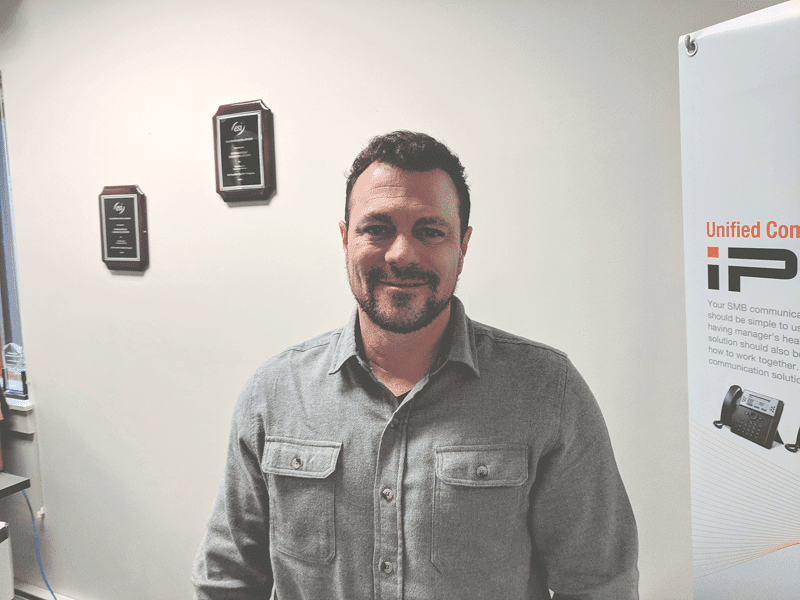Behavioral Health Can’t Be A Neglected Piece Of The Puzzle
Robert Simpson, chief operating officer for Sisters of Providence Behavioral Health, says things go on in the behavioral health sector that simply wouldn’t be permitted in other realms of health care — and he’s right.
He was referring primarily to problems with access to behavioral health services. Children and sometimes adults must wait for days until psychiatric beds can become available, he said, and often, when a bed does become available it is in a community many miles away from the child’s home.
Meanwhile, there is the phenomenon of so-called “stuck kids” — those who don’t need to be on a psychiatric floor but are boarded on one because there are no residential facilities to which they may be transferred — which further restricts access to beds.
And the hospitals that house stuck kids are essentially penalized for doing so, with the state often reimbursing them at a rate less than it does for typical patients, and far less than the cost of the care being provided.
The injustice that prevails with the stuck children is perhaps the most glaring example of how the behavioral health component of the state’s health care system has become a largely neglected piece of the larger puzzle.
Granted, seemingly all aspects of health care delivery — from acute services to home care to nursing homes — are suffering today in a system that is definitely broken. But behavioral health care facilities have been left with burdens that make it extremely difficult to operate, and many are closing their doors as a result.
Lowell General Hospital and Charles River Hospital in Wellesley joined the list of providers that have given up trying to operate all or parts of their units in anything approaching a profitable state, and others may follow suit.
And as more facilities, both public and private, cease operations, the pressures on the remaining providers mount, accelerating a very dangerous cycle.
Clearly, the Commonwealth needs to do something to stem this tide, because the behavioral care component of the system is simply too important to let fall into such a state of disrepair.
Indeed, behavioral health problems — especially drug and alcohol addiction — contribute to a number of ailments. By neglecting and short-shrifting this component of the system, elected leaders and third-party payers are buying more trouble for themselves down the road, when the Baby Boom generation reaches retirement age.
At the same time, demand for psychiatric care is growing due to to factors ranging from the aging of the population to the aftereffects of 9/11. By 2010, experts say, depression will be the number-one health problem in the country.
To be fair, the Commonwealth has taken some steps to ease the plight of behavioral health care providers. This past year, an 11{06cf2b9696b159f874511d23dbc893eb1ac83014175ed30550cfff22781411e5} increase in reimbursement rates was approved. However, it was the first increase in eight years, and facilities are still being underfunded by at least 15{06cf2b9696b159f874511d23dbc893eb1ac83014175ed30550cfff22781411e5}. Meanwhile, in the state’s supplemental budget, $85 million was restored to various programs, including $16.6 million to the Department of Mental Health (DMH). That measure should allow the DMH to back off its plans to no longer accept transfers of adult patients from hospital psychiatric wards to DMH hospitals.
Still, there is more than can and must be done to permit behavioral health facilities to operate more cost effectively. The year ahead will likely be a challenging one for the state, and there will be a number of programs across all stratas competing for fewer dollars.
Another increase in reimbursement rates is not likely, say those in the behavioral health community, but one will be necessary to prevent more closures such as those at Lowell General and Charles River.
Rate relief is especially warranted for the treatment of children and adolescents. The lower rate for stuck kids is a financial penalty that is putting many of the state’s child/adolescent units, including the one operated by the Sisters of Providence, in financial peril. If the state isn’t going to build more residential facilities to house these children, it should at least pay hospitals a fair rate for dealing with a problem that is not of their making.
To borrow an old marketing phrase, the state can either deal with this problem, or it can pay later. Suffice it to say that the longer it waits, the higher the price it will pay.


Comments are closed.